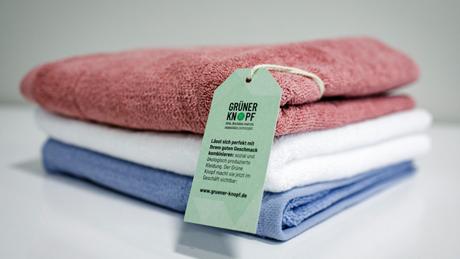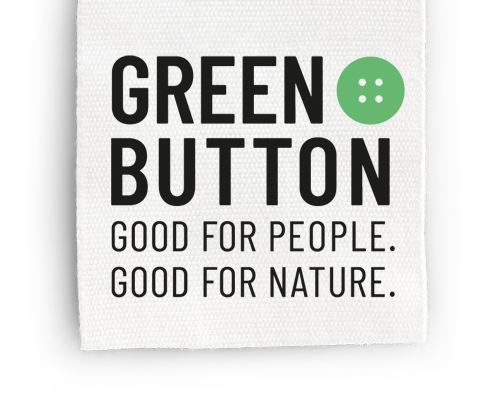Minister Müller welcomes first successful audit for Green Button outside Germany
The government-run textile label "Green Button" is beginning to play an increasingly important role at the international level, too. The first company outside Germany has now successfully undergone the auditing process for the label - Beirholm Væverier from Denmark ("Væverier" is Danish for "weaving mill"). In the period since the Green Button was introduced in September 2019, 59 companies and their products have completed the process for using the mark, meaning that they comply with its ambitious social and environmental standards.
German Development Minister Gerd Müller stated: "Sustainability is becoming a stronger trend than ever before. I am delighted that Beirholm, a Danish enterprise, has now joined the effort. The Green Button is an international label. There are further international businesses that are currently going through the auditing process.''
Beirholm produces sustainable textiles for hotels and hospitals. We need companies like that! After all, more and more public and private customers are looking for sustainability in the products they buy. For example, the German State of Bavaria is planning to restrict its textiles procurement to products that have been awarded the Green Button or similar labels. Germany's two large faith-based social service agencies, Caritas and Diakonie, have opted for sustainable textiles, too. The 2.2 million beds alone which they have in their 56,000 facilities require huge quantities of textiles. During the current COVID-19 crisis in particular, solidarity and responsibility are extremely important - including with regard to the people who make our garments. Sustainable supply chains are the global social issue of the 21st century."
Beirholm CEO Peter Beirholm said: "Sustainability knows no borders. We are proud to be the first company outside Germany to have been certified with the Green Button. This label offers a holistic approach to sustainability and, being government-run, provides guidance and confidence. We look forward to working with the Green Button to further strengthen sustainability in our industry and to further enhance the profile of the Green Button beyond Germany's borders."
The government-run "Green Button" textile label, which was introduced in 2019, provides reliable guidance for consumers who wish to buy sustainably produced textiles. The label requires compliance with a total of 46 stringent social and environmental standards, from labour rights all the way to testing for chemical residues. Compliance is monitored by independent auditing bodies. What is special about the Green Button is that it is more than a traditional product label. It is the first label that also gives systematic attention to whether the company as a whole meets its due diligence obligations. Does the company know the risks in its supply chain? Is it addressing them? Do garment workers have access to complaints mechanisms? A few products "for show" are not enough. The entire company has to embark on this journey. Many enterprises that wish to use the Green Button have to move forward in order to meet its ambitious standards.
The Green Button was devised as an international label from the beginning - it complies with EU legislation and WTO rules, and auditing is based on harmonised international standards. An application has also been submitted to the European Union Intellectual Property Office to make the Green Button a European Union certification mark.
- Just a year after its introduction, the Green Button has already become established in the market - in spite of the COVID-19 crisis, which has hit the textile industry particularly hard. In the first half of 2020, more than 50 million textile items with the Green Button label were sold, of which 35 million were garments. This is a market share of 1.5 to 3 per cent - a respectable achievement in the midst of the COVID-19 crisis.
- Green Button products are now available for all tastes and purses - you can dress in Green Button garments from head to toe. There are hats, T-shirts and sneakers, and also bedding, backpacks and even tents.
- One-third of all Germans have heard about the Green Button. They state clearly that they are in favour of a certification mark run by the German government to monitor compliance with social and environmental standards.
- An independent market survey carried out by GfK market research institute showed that the Green Button is set to become a success story.
About Beirholm Væverier
Beirholm is a family business in the textile sector. It is based in Kolding, Denmark, and celebrated its 150th anniversary in 2020. It develops and sells high-performance textiles for hotels, restaurants, nursing homes and hospitals, with a focus on the European textile services industry. Beirholm pursues a policy of transparency, commitment to sustainability and high social standards along its entire textile supply chain.
(Quelle http://www.bmz.de/20210107-1en)


